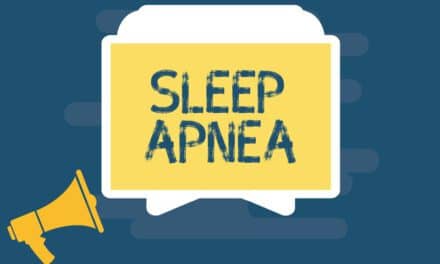The latest findings from the National Sleep Foundation (NSF) Sleep in America poll report that pain is a key factor in the gap between the amount of sleep Americans say they need and the amount they are getting.
Results of the National Sleep Foundation (NSF) 2015 Sleep in America Poll1 show that pain is a key factor in the gap between the amount of sleep Americans say they need and the amount they are actually getting. According to the poll, on average, people who had chronic pain in the past week reported a 42-minute sleep debt while people who suffered with acute pain had a 14-minute sleep debt.
“Making sleep a priority, even in those who have pain, is important, as it reduces the impact on their life and well-being,” said Tim Roehrs, PhD, poll task force chair and senior bioscientist, Henry Ford Hospital, Detroit, Mich.
Roehrs, who specializes in excessive sleepiness, insomnia, and pain, pointed to the fact that sleep and pain have a bidirectional relationship, meaning that pain makes sleep worse and worse sleep makes pain worse. “Most everyone already recognizes this,” he said.
“But what is new is that people who had chronic pain and paid special attention to their sleep had an improved ability to cope with the pain.”
In comparison, while there is no overall sleep debt for those without pain, many people in this group have sleep problems. About 1 in 3 of those without pain don’t always or often get a good night’s sleep or the sleep they need to feel their best, or they have had trouble falling or staying asleep in the past week. Those problems increase among individuals with chronic or acute pain.
Roehrs said he was encouraged by the fact that the poll’s information regarding sleep in the general population was consistent with what previous polls had found, in terms of the average sleep time in the population, the percentage of people who think they get inadequate sleep, and so forth. The poll found that people spent an average of 7.9 hours in bed on work days and 8.6 hours on free days.
Make Sleep a Priority
The poll also revealed that, in addition to pain, stress and poor health can correlate to shorter sleep durations and worse sleep quality. In an effort to resolve sleeping problems, people should take actions to promote a good night’s sleep. “People who make sleep a priority do sleep more, including those who are in pain,” said Kristen L. Knutson, PhD, assistant professor, Section of Pulmonary & Critical Care, Department of Medicine, University of Chicago. According to the study, among chronic pain sufferers, those who were very or extremely motivated to get enough sleep slept 42 minutes more than those who were not that motivated or not motivated at all.
In addition, all participants who were motivated to make sure that they had enough time to sleep had longer sleep durations and better sleep quality. In fact, people who said that they were very or extremely motivated to get enough sleep reported sleeping 36 more minutes per night across the week compared to those were not that motivated or not motivated at all (7.3 versus 6.7 hours). (See Figure 1.)
To make their bedroom as sleep friendly as possible, patients should address environmental factors including noise, light, temperature, and their mattress. “Make sure your bedroom is as dark as possible (or wear an eye mask), make it as quiet as possible (or wear ear plugs), and make sure the temperature is comfortable,” Knutson said.
After adjusting for sociodemographic factors, such as age and gender, people with acute and chronic pain were still more likely to have sleep difficulties, the study reported. Similar associations were observed for people with average pain intensity: those with severe pain were more likely to report that their sleep was disturbed by these environmental factors. For example, 21% of those with the most severe pain reported having sleep disturbed by inside noise, compared to 8% of those with mild pain. (See Figure 2.)
“Understanding the importance of sleep and taking a proactive approach to bed times can help everyone improve their sleep, even people with pain,” Knutson said. “Taking control of your sleep is an important step in taking control of your health.”
David Cloud, CEO of the National Sleep Foundation, added, “Sleep is a key marker of health, and good sleep habits are critical for improving the quality of life of those living with chronic or acute pain.”
Key Findings
The poll was a probability-based online survey of 1,029 noninstitutionalized adults aged 18 to 91 years old, with an average age of 47. Approximately 52% of respondents were women.
The national, random-sample survey established the broad impact of pain-related sleep loss on millions of Americans. The study found that 21% of Americans had chronic pain and 36% had acute pain in the past week. When combined, that totals a majority of the American population, 57%, leaving 43% pain free.
According to the poll, individuals who rated their health or quality of life more highly (very good or excellent) reported getting approximately 30 minutes more sleep on average in the past 7 days than those who rated their health or quality of life as fair or poor. Those who rated their general health more highly were approximately twice as likely to rate their sleep quality as very good or excellent. (See Figure 3.)
Self-reported sleep quality and stress levels underscore the effects of pain on sleep. Sixty-five percent of those without pain reported good or very good sleep quality, while only 46% of people with acute pain and 36% of those with chronic pain had good to excellent sleep. Additionally, 23% of those with chronic pain reported higher stress levels, compared with 7% of those without pain.
The study also showed that people with acute or chronic pain are more likely to have sleep problems that impact their daily lives. Among people who had sleep difficulties in the past week, more than 4 in 10 of those with chronic pain said those difficulties interfered with their work. For those without pain, that drops to 23%.
People with pain also feel that they have less control over their sleep, worry more about lack of sleep affecting their health, and exhibit greater sleep sensitivity. They are more likely than others to say environmental factors make it more difficult for them to get a good night’s sleep, suggesting that taking greater care of the bedroom environment may be particularly helpful to pain sufferers.
While both chronic and acute pain relate to lost sleep, the survey indicated that chronic pain was an especially powerful problem. Nearly 1 in 4 people with chronic pain (23%) said they had been diagnosed with a sleep disorder by a doctor, compared with only 6% of everyone else.
In general, Knutson reported that those who took pain medication had worse sleep, but the data cannot tell whether the poor sleep was a result of the medication. “In fact, it’s likely that those with greater pain were the ones taking pain mediation and also had worse sleep,” she said.
Applicable to the Real World
Roehrs said the results confirmed what patients in his sleep lab already experienced. “I was gratified that a poll could pick this up—that if you pay attention to sleep, it lessens the impact of pain,” he said.
For example, in 2014 Roehrs identified patients with inadequate sleep time, regardless of whether or not they had pain or not, before surgery. In the controlled study, one group of randomized patients stayed on their sleep schedule a week before their surgery and the other group increased their bed time. “We measured how much sleep they got in both groups,” he said. “In the group that got an hour more of sleep one week before surgery, their pain ratings were reduced on the first 2 days after surgery and they were able to reduce their analgesic use by 30% less morphine. This shows the practical implications of getting more sleep.”
As a clinical scientist, Roehrs wanted to know what sleep changes in the brain and in the periphery. “I will continue to try to understand what physiological process the improved sleep is impacting,” he said. “We have some ideas about what happens in chronic pain conditions and I’d like to see whether our therapeutic approaches are actually changing that underlying pathology.”
Interestingly, Roehrs noted that several lab studies suggest that sleep itself is analgesic. “Your sensitivity to a painful stimulus is lowered during your sleep,” he said. “Patients with chronic or acute pain have some difficulty getting to sleep and maintaining that sleep. But once asleep, their pain sensitivities are reduced compared to when they are awake.” In particular, the rapid eye movement (REM) stage of sleep is more analgesic than the other sleep stages.
Choosing the Topic
After sponsoring a symposium on the topic of sleep and pain 5 years ago, the NSF board members believed that sufficient time had elapsed for more information to emerge and that it was time to revisit the topic. “When we discussed the poll questions and their focus, we talked about what are unknown areas and important areas to further explore,” Roehrs recalled. “Some sleep specialists on the task force, including myself, were aware of the emerging lab information and we were keen on trying to see whether it applied in the real world.”
“To the extent that we can educate the public on the importance and value of sleep, we all strongly believe we will improve public health,” Roehrs said. “Public health messages do change public health behavior, and that’s NSF’s goal and my goal as an individual sleep clinician. For me, good sleeping habits are as important as good eating habits, so I want to raise sensitivities about good sleep habits.”
Good Sleep Can Indicate Good Health
People who report very good or excellent health and quality of life slept 18 to 23 minutes longer on average in the past week than those who rated their health and quality of life as just good, fair, or poor, the study noted. Reported sleep duration and quality decline linearly with each health rating, showing that perceptions of one’s sleep and health are deeply related.
“Sleep quality and duration should be considered a vital sign, as they are strong indicators of overall health and quality of life,” Knutson concluded. “Extremely long or short sleep durations are associated with more specific conditions, but for many people who are close to getting the recommended 7 to 9 hours of sleep, getting just 15 to 30 minutes more sleep a night could make difference in how they feel.” RT
____________________________________________________________
Karen Appold is a contributing writer to RT. For further information, contact [email protected].













